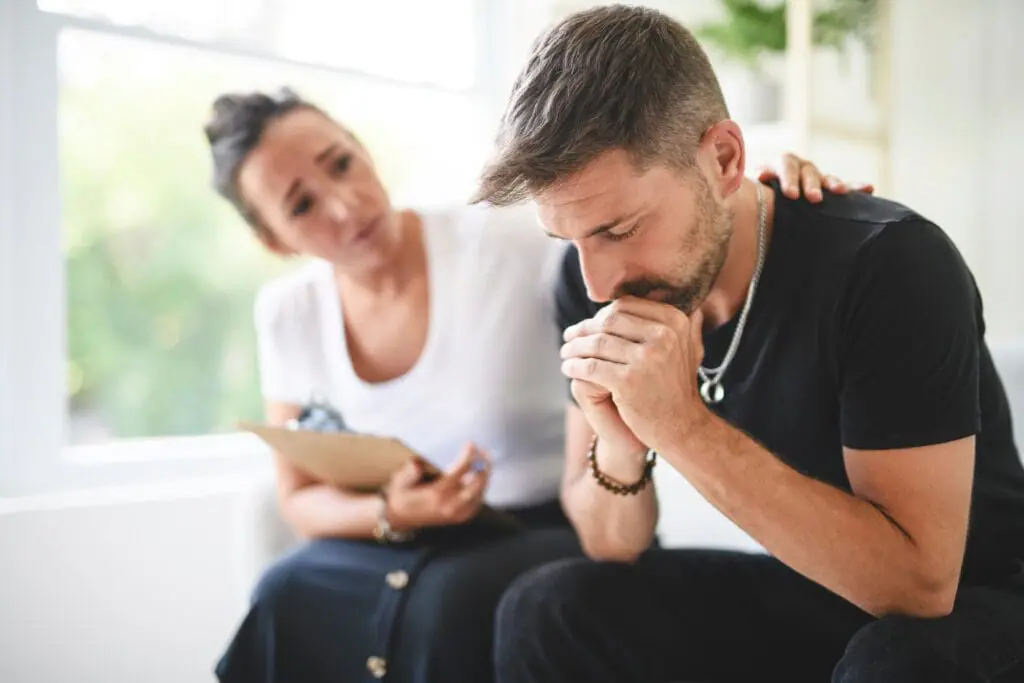What Is Social Wellness?
Social wellness refers to building and engaging in thoughtful, trusting, and authentic relationships with those around us. Humans are inherently social beings, meaning that most of us are taught how to engage with others from a young age. Over time, however, maintaining these connections becomes more difficult, especially if an individual is struggling with an alcohol or substance abuse disorder.
Many people in these situations tend to isolate themselves to focus on substance use. Utilizing good wellness practices throughout recovery can help patients learn how to build authentic connections again, helping them maintain sobriety. 1
Social Wellness Goals
The main goals of social well-being and social health are to help individuals work on their communication and relationships. This can be done in multiple ways, such as participating in support groups, going to couples or group therapy, joining a club or team, or even just learning how to express emotions healthier.
What Does Social Wellness Mean in Addiction Recovery?
Social wellness can take many forms for those who are currently undergoing detox or recovery. It is also incredibly beneficial to overall social health and wellness. While wellness in recovery doesn’t always focus specifically on social well-being – it can also look at emotional, mental, behavioral, and physical health – good wellness can help cultivate those other areas. Studies have shown that “belonging to a social group…can improve both physical and mental health.” 2
What Does Social Wellness Look Like?
Depending on the health needs of each patient, the social dimension of wellness can look different for each person. For example, one person may need help learning how to communicate healthier while also attending 12-step groups, while another may need help learning how to engage authentically with family and friends while also learning how to cultivate their own mental health with self-care.
Discussing your needs with a therapist or medical professional will help you figure out what aspects you can learn and grow in.
Why Is Social Wellness Important in Addiction Recovery?
Social well-being is integral for those in addiction recovery, as it not only helps with social health. As stated before, it can help patients increase their overall mental, physical, and emotional health, which are important for staying healthy and potentially preventing relapse in the future. This type of wellness helps remind those with substance abuse disorders that they’re not alone and can rely on others if necessary.
Also, the benefits help with overall stress levels. Stress can impact our physical and emotional health. Having a strong social support system has been shown to help with symptoms of trauma-induced disorders.3
Addiction Recovery and Social Wellness at San Diego Detox
If you or a loved one want to start working on your wellness skills or get help with a substance abuse disorder, San Diego Detox can help. We offer direct individualized care that focuses on areas you may need help with, which can involve medication-assisted treatment and sub-acute detox. We also have skilled and passionate staff that will help care for you around-the-clock.
Treatment Opportunities
We have multiple options available to help, ranging from 12-step and support groups, physical activities at our gym or lazy river, or learning how to cultivate social wellness by working with a therapist.
We will be with you every step of the way through your recovery so you can focus on healing. Learning how to grow social and emotional wellness is an imperative part of that journey, and we can figure out how to implement it into your treatment program. Reach out to us today.
How to Improve Social Wellness
Depending on what areas of social wellness you need help with, figuring out how to improve your overall social health will differ from person to person. However, a few of the best activities include: 4
Making Connections
Social connections can help our overall health and wellness, giving us a strong support system to rely on in times of stress. A few ways to make new connections include:
- Joining a group such as a book club or sports team
- Taking a yoga class
- Volunteering with local organizations
- Traveling to new places
Taking Care of Yourself and Others
Taking care of others can ultimately take a toll on our mental and emotional health. Learning to care for others while taking care of yourself is imperative to maintaining a healthy balance. Some examples include knowing when to ask for help, getting organized, and taking breaks. There’s no shame in taking care of yourself and making yourself a priority.
Staying Active
Studies have shown time and time again that staying active can help improve our overall social and mental well-being. Even if it’s just walking around the block, getting in some physical activity a few times a week can greatly improve your wellness, especially if you join a group activity or sport.
Building Healthy Relationships
Strong relationships with others are imperative to wellness goals. While we mostly learn how to communicate and engage with others from a young age, it’s never too late to learn how to form and maintain authentic and lasting relationships. To build healthy relationships with others, you can:
- Share your feelings honestly
- Engage in active listening
- Learn how to handle conflict
- Know when to distance yourself from people who may not be healthy for you
- Recognize how others impact you and your health
- Know when to ask for help
Where Can You Find Social Wellness Support?
If you’re struggling to know where to find support, there are a few places you can start. These include:
- Support groups
- Friends and family
- Online support resources
- Centers and clubhouses
- Recreational centers
You don’t have to take big steps in the beginning, either. Learning to implement a few of these tips into your daily or weekly routine can make a big difference in your social health.






